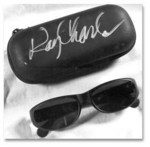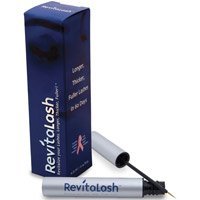Santa Ana, CA – Trademark attorneys for Econo Lube N’ Tune franchisor sued a Ventura, CA based franchisee for trademark infringement and breach of franchise agreement at the Federal District Court (Santa Ana Division). The USPTO registered trademark, Econo Lube ‘N Tune, is used by franchisees to provide automotive tune-up and brake services, lubrication, oil changes, and certain related minor automotive services. Because the trademark has been registered for over five years, since 1981 to be exact, the trademark is incontestable under the Lanham Act, 15 U.S.C. § 1115(b).
 Plaintiff alleges that on August 1, 2006, Robert Gerz entered into a sublease and franchise agreement for the Econo Lube location in Ventura. The franchise agreement provided a limited license to use the trademark while the franchisee was in good standing, but on the termination of the franchise, the right to use the trademark ceases immediately. Six months after entering into the agreement, Defendant allegedly defaulted on his obligations to make rental payments under the sublease and royalty payments under the franchise agreement. Plaintiff provided notice of the breach to defendant, and defendant allegedly failed to cure the breach by making the required payments, “instead, Gerz engaged in a pattern of delay for the purposes of allowing him to continue his unauthorized operation of the franchise and use of the trademark for as long as possible.” Plaintiff filed an action in the Superior Court of the State of California, Count of Ventura, seeking, among other things, a judgment of possession against Gerz. One week before trial, however, Gerz vacated the premises mooting the trial for possession. As a result, the instant lawsuit was filed asserting the following causes of action: (1) Trademark infringement, 15 U.S.C. § 1114; (2) Breach of sublease agreement; (3) Breach of franchise agreement; and, (4) Unfair competition under Cal. Bus. & Prof. Code § 17200. The case is titled Econo Lube N’ Tune, Inc. v. Robert Gerz, SACV08-00598 CJC (C.D. Cal. 2008).
Plaintiff alleges that on August 1, 2006, Robert Gerz entered into a sublease and franchise agreement for the Econo Lube location in Ventura. The franchise agreement provided a limited license to use the trademark while the franchisee was in good standing, but on the termination of the franchise, the right to use the trademark ceases immediately. Six months after entering into the agreement, Defendant allegedly defaulted on his obligations to make rental payments under the sublease and royalty payments under the franchise agreement. Plaintiff provided notice of the breach to defendant, and defendant allegedly failed to cure the breach by making the required payments, “instead, Gerz engaged in a pattern of delay for the purposes of allowing him to continue his unauthorized operation of the franchise and use of the trademark for as long as possible.” Plaintiff filed an action in the Superior Court of the State of California, Count of Ventura, seeking, among other things, a judgment of possession against Gerz. One week before trial, however, Gerz vacated the premises mooting the trial for possession. As a result, the instant lawsuit was filed asserting the following causes of action: (1) Trademark infringement, 15 U.S.C. § 1114; (2) Breach of sublease agreement; (3) Breach of franchise agreement; and, (4) Unfair competition under Cal. Bus. & Prof. Code § 17200. The case is titled Econo Lube N’ Tune, Inc. v. Robert Gerz, SACV08-00598 CJC (C.D. Cal. 2008).
 Trademark attorneys for the popular designer apparently believed that when he agreed to sell his company and trademarks – which included the USPTO registered Joseph Abboud trademark – it would not prevent him from later using his own name to promote his affiliation with a new clothing line. The Court disagreed and issued a permanent injunction preventing the designer from using his own name to promote his new “jaz” fashion line. CLICK HERE for the Court’s decision.
Trademark attorneys for the popular designer apparently believed that when he agreed to sell his company and trademarks – which included the USPTO registered Joseph Abboud trademark – it would not prevent him from later using his own name to promote his affiliation with a new clothing line. The Court disagreed and issued a permanent injunction preventing the designer from using his own name to promote his new “jaz” fashion line. CLICK HERE for the Court’s decision. Los Angeles Intellectual Property Trademark Attorney Blog
Los Angeles Intellectual Property Trademark Attorney Blog







 Defendant allegedly sells vehicle polishing and cleaning services that are described as “TEFLON® Polishing” and “TEFLON® Shine.” The complaint alleges that Defendant’s products do not contain genuine DuPont TEFLON® fluoropolymer. DuPont allegedly contacted the defendant and asked it to stop use of the mark, but defendant refused, thereby necessitating the lawsuit. The case is titled E.I. Du Pont De Nemours & Co. v. Tropic Shield, Inc., SACV08-00252 CJC (C.D. Cal. 2008).
Defendant allegedly sells vehicle polishing and cleaning services that are described as “TEFLON® Polishing” and “TEFLON® Shine.” The complaint alleges that Defendant’s products do not contain genuine DuPont TEFLON® fluoropolymer. DuPont allegedly contacted the defendant and asked it to stop use of the mark, but defendant refused, thereby necessitating the lawsuit. The case is titled E.I. Du Pont De Nemours & Co. v. Tropic Shield, Inc., SACV08-00252 CJC (C.D. Cal. 2008). Defendants own and operate a retail store named Rock Town, and a private investigator – acting on behalf of Plaintiffs – allegedly “purchased an unauthorized t-shirt bearing an image of Tupac Shakur and the trademark ‘Makaveli.'” Plaintiffs sent a cease and desist letter to the Defendants, to which there has been no response. Plaintiffs filed the instant lawsuit seeking monetary damages and injunctive relief. The case is titled Amaru Entertainment, Inc. v. Reza Falatoon, CV08-03317 DSF (C.D. Cal. 2008).
Defendants own and operate a retail store named Rock Town, and a private investigator – acting on behalf of Plaintiffs – allegedly “purchased an unauthorized t-shirt bearing an image of Tupac Shakur and the trademark ‘Makaveli.'” Plaintiffs sent a cease and desist letter to the Defendants, to which there has been no response. Plaintiffs filed the instant lawsuit seeking monetary damages and injunctive relief. The case is titled Amaru Entertainment, Inc. v. Reza Falatoon, CV08-03317 DSF (C.D. Cal. 2008). The complaint alleges that Defendants incorporated under the confusingly similar name of Athena Bioscience, also using it as a trademark, in addition to using the confusingly similar trademark of Athena Lash Serum. The complaint further asserts causes of action for unfair completion under Cal. Bus. & Prof. Code §17200, intentional interference with prospective economic advantage, intentional interference with contract, and declaratory relief under 28 U.S.C. §2201 as to the ownership of the trademarks. The case is titled Athena Cosmetics, Inc. v. Athena Bioscience, SACV08-0532 AG (C.D. 2008).
The complaint alleges that Defendants incorporated under the confusingly similar name of Athena Bioscience, also using it as a trademark, in addition to using the confusingly similar trademark of Athena Lash Serum. The complaint further asserts causes of action for unfair completion under Cal. Bus. & Prof. Code §17200, intentional interference with prospective economic advantage, intentional interference with contract, and declaratory relief under 28 U.S.C. §2201 as to the ownership of the trademarks. The case is titled Athena Cosmetics, Inc. v. Athena Bioscience, SACV08-0532 AG (C.D. 2008).